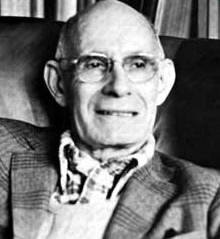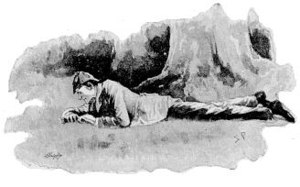James McGrath blogged with reference to the recent interview with and follow up comments by Earl Doherty here, and Earl Doherty has replied here.
For ease of reference I bring the two — McGrath’s post and Doherty’s response — together in this post.
James McGrath’s post
Earl Doherty Believes Paul Existed…For Much the Same Reasons Historians Believe Jesus Existed
Neil Godfrey has kindly posted an interview with Earl Doherty and then Doherty’s response to a question from Evan, who also frequently comments here at Exploring Our Matrix. The question relates to whether and why Doherty accepts the existence of a historical Paul, but not a historical Jesus.
It is a fantastic question.
If mythicism emerges out of a principled stance that literary documents alone, or in particular literary documents all from a particular religious tradition, cannot serve as historical evidence for the existence of persons, then there ought to be no difference in how the two are viewed. The difference of genre between letters claiming to be written by Paul and Gospels claiming to be about Jesus is for all intents and purposes irrelevant when it comes to this question, since there is no more difficulty forging letters from a fictional person than in “forging characters” in a fictional narrative.
Doherty, in fact, believes that a historical Paul makes better sense of the evidence. That is, of course, precisely the stance of historians when it comes to the question of the existence of a historical Jesus.
I am curious whether Neil Godfrey, Evan, and others will criticize Doherty for this or will be pleased with his answer. Either way it should make for interesting discussion.
Posted by James F. McGrath at 10:58 PM
.
And Earl Doherty’s response:
First let me comment on Jim McGrath’s remarks posted on his blog.
If Jim really believes that there is no difference between the evidence for Paul and the evidence for Jesus (regardless of how they are to be ranked), if he believes that accepting one figure requires that we must accept the other, he has very little understanding about the arguments for mythicism. And he is ignoring the very differences I pointed out in the posting he has quoted from this blog.
I’m not sure what Jim is so excited about, or what point he thinks he has scored. He claims that
“Earl Doherty Believes Paul Existed…For Much the Same Reasons Historians Believe Jesus Existed.
Doherty, in fact, believes that a historical Paul makes better sense of the evidence. That is, of course, precisely the stance of historians when it comes to the question of the existence of a historical Jesus.”
Yes, it may be their stance, but that does not make the two positions necessarily equal in merit, and certainly not for the same “reasons.” Every field of research, or some segment of it, will make a similar claim, that its current conclusion makes the best sense of the evidence. Until, that is, some other research comes along and demonstrates otherwise. And one case of such a claim can hardly be used to prove the legitimacy of some other case. This is a peculiar type of fallacy.
There is no question that historicists claim that the existence of an HJ makes better sense of the evidence. But are they justified in so claiming? Are they being unbiased and free from predisposition? Are they immune from reading one set of documents into another? Are their arguments coherent and free of fallacy? The mythicist position is that they are not.
The fact that we hold respective convictions that we’ve made the best sense of the evidence is not dramatic in itself and hardly proves anything. Jim seems to be suggesting that my acceptance of the likelihood of an historical Paul and my rejection of the likelihood of an historical Jesus is some kind of arbitrary eenie-meenie-minee-moe. Rather, it is a matter of subjecting each case to its own careful and unbiased examination.
One of the major differences I put forward was the nature of the evidence. We have writings purporting to be by Paul, but none by Jesus. Much of the ‘genuine’ Pauline letters have the sound of a real person with all its human emotions and weaknesses, its personal experiences and reactions to real-life situations. The “sound” of Jesus in the Gospels, on the other hand, is a bunch of set-pieces and mirrorings of scripture, almost nothing in the way of an identifiable personality. Even his third-person-related deeds are midrashic rewrites of passages from scripture. On the cross, Mark can give him nothing more to say than a line from Psalm 22. As for the epistles, they ‘recount’ Jesus’ life by paraphrasing lines from passages like Isaiah 53, as in 1 Peter 2:22. This is just one example of the differences between the two ‘records’ and why a conviction of reality in regard to Paul has its own reasons which are quite distinct from the reasons historicists may have for their conviction of reality for the Gospel figure. If Jim cannot recognize those differences and their quality, or chooses to ignore them, it is no wonder he finds the mythicist case so easy to dismiss.
Earl Doherty
Comment by Earl Doherty — 2011/04/05 @ 3:17 am
Like this:
Like Loading...


 This post is a continuation of Earl Doherty’s responses to James McGrath’s
This post is a continuation of Earl Doherty’s responses to James McGrath’s 

 l
l -t
-t
